Description
Name in North American Boletes: Boletellus chrysenteroides
Genus: Boletellus
Species: chrysenteroides
Common Name:
Tells: Reddish brown/black, scabered stem, often w/yellow high up, stains blue from handling & then slowly reddens. Grows on or around dead wood. Yellowish pores bruise blue.
Other Information: Dark cap often cracks w/age, showing red in the splits. Pale yellow cap flesh stains blue, often slowly. Stem stains blue and then slowly reddens when handled. An interesting but fairly rare mushroom described by MushroomExpert.com as: “Leccinum-like in its stem, Boletus Chrysenteron-like in its cap, and boletellus-like in its longitudinally ridged spores.” Likes oak best, but also pine. Usually a summer or fall find.
Edibility: Good.
CHEMICAL TESTS:
- NH4OH (Ammonia): Per Michael Kuo, Cap turns black, & cap flesh turns brown. (No data in North American Boletes).
- KOH: Cap turns black. Cap flesh turns brown.
- FeSO4 (Iron Salts): Cap flesh turns olive.
Links:
 |
567 |  |
0 |  |
84 |  |
78 |

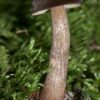
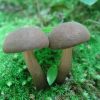
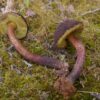
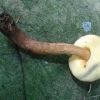
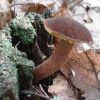
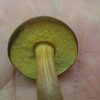
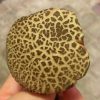
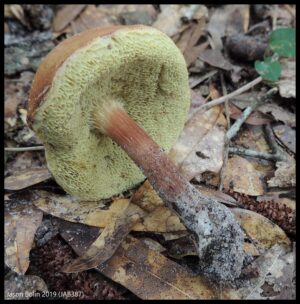
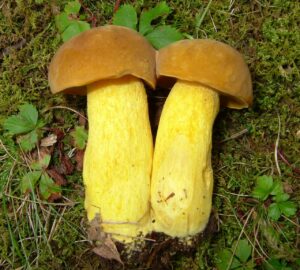
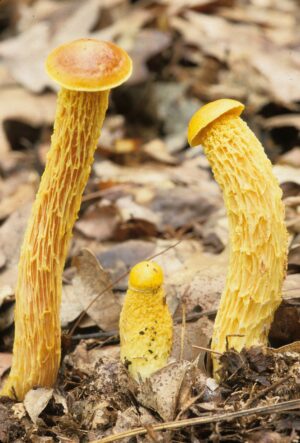
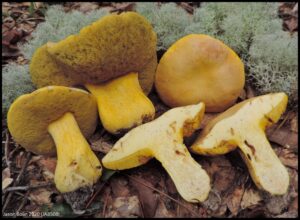
Got something to discuss?